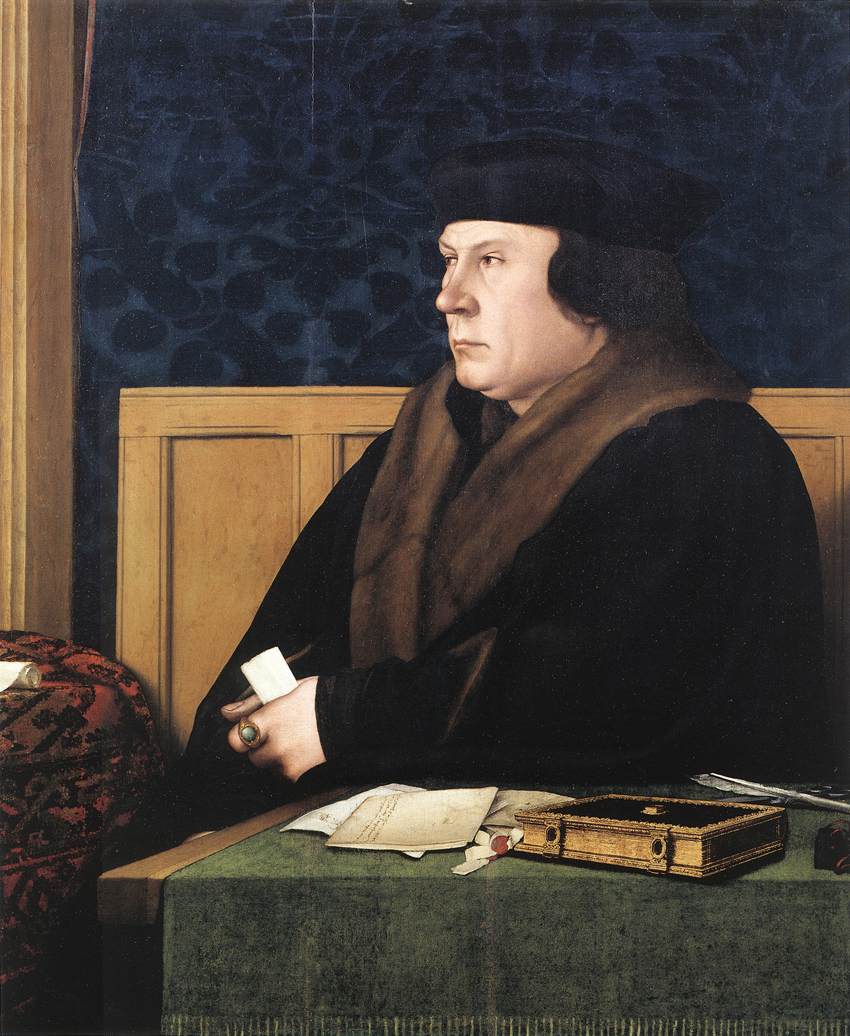Week 15
Our subject tonight is one of the most complex and fascinating politicians of the early modern world: Thomas Cromwell. He was brilliant, creative, progressive, modern, and also dark and ruthless and shockingly unscrupulous. See at the bottom of the page the brilliant portrait of Cromwell painted by Hans Holdbein and now in the Frick collection in New York City.
The historian who revealed more about Cromwell than all the previous English historians combined, was G. R. Elton whose book The Tudor Revolution in Government brought about its own revolution in the writing of history about Tudor government.
From Wikipedia article on Sir Geoffrey Elton:
"Elton focused primarily on the life of Henry VIII, but made significant contributions to the study of Queen Elizabeth I. Elton was most famous for arguing in his 1953 book The Tudor Revolution in Government that Thomas Cromwell was the author of modern, bureaucratic government which replaced medieval, household government. This change took place in the 1530s and must be regarded as part of a planned revolution. In essence, Elton was arguing that before Cromwell the realm could be viewed as the King's private estate writ large and that most administration was done by the King's household servants rather than separate state offices. Cromwell, who was Henry VIII's chief minister from 1532 to 1540, introduced reforms into the administration that delineated the King's household from the state and created a modern bureaucratic government. He shone Tudor light into the darker corners of the Realm and radically altered the role of Parliament and the competence of Statute. By master-minding these reforms, Cromwell was said to have laid the foundations of England's future stability and success. Elton elaborated on these ideas in his 1955 work, the best-selling England under the Tudors, which went through three editions after its first appearance, and his Wiles Lectures, which he published in 1973 as Reform and Renewal: Thomas Cromwell and the Common Weal. His thesis has been widely challenged by Tudor historians and can no longer be regarded as an orthodoxy, but Elton's contribution to the debate has profoundly influenced subsequent discussion of Tudor government, in particular concerning the role of Cromwell."
RECOMMENDED BOOK
If you would like to read a new biography of Cromwell, here is an excellent study from one of the masters of the history of the Christian church in England.
RECOMMENDED BOOK:
Here is a great novel about Thomas Cromwell which has been adapted for TV by PBS.


